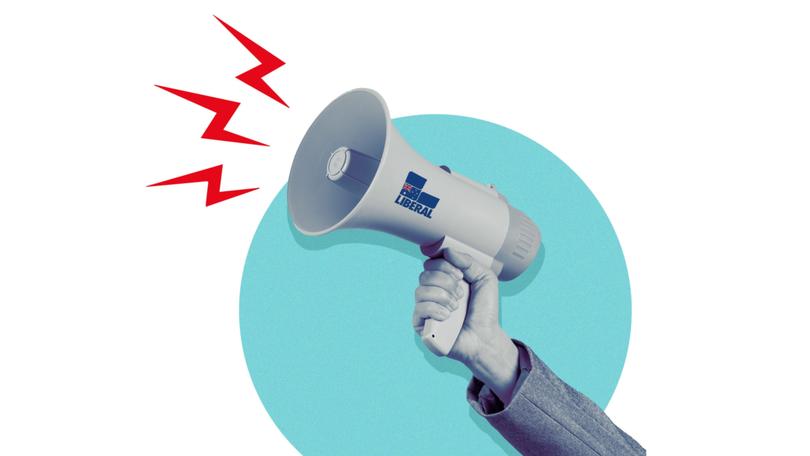ANDREW CARSWELL: A to-do list for the Liberal party, less culture wars, more actual policies
ANDREW CARSWELL: With voters walking away, the Liberals can keep swinging at shadows — or finally get serious about rebuilding something that sticks.

It might take them a while, once the party reconvenes, albeit in a much smaller room.
But once they finally work it out, it’d be nice to hear what the Liberal Party is for, not just everything it’s against. Just a simple request. Nothing major.
Yes, we get it. You clearly don’t really like refugees, Indigenous Australians, electric vehicles, renewable energy, trans people, teachers, universities, activists, renters, public servants, climate change scientists, the ABC, the Voice, CEOs, Welcome to Country, unisex toilets, Canberra, working mothers, State premiers, progressive school curriculums, vegans, drug law reform, China, government spending, higher emissions targets, Indigenous flags, free childcare, African gangs, wokeism, and of course the Guardian.
Sign up to The Nightly's newsletters.
Get the first look at the digital newspaper, curated daily stories and breaking headlines delivered to your inbox.
By continuing you agree to our Terms and Privacy Policy.You’ve made that point quite a few times now.
But what does the modern Liberal Party actually stand for? What are the values that still get you out of bed in the morning? What are the principles that underpin its being?
It used to be about lower taxes and smaller budget deficits, but there has clearly been a “conscious uncoupling” from these cornerstone pillars of economic conservatism. In this election campaign, the Coalition actively advocated for the opposite.
It used to be about fiscal responsibility, till the party tried to outspend a Labor Government in the vain pursuit of populism.
It used to be about free markets and economic empowerment, until heavy-handed market interventions took precedence over classical liberalism.
It used to be about personal responsibility, freedom and aspiration, till those taking responsibility advocated for things the Liberal Party didn’t really like. Till freedom came back with baggage.
It used to be about supporting business to enable economic growth, till it become popular to denigrate and deplore the very people who create Australian jobs.
This is the primary responsibility of the next iteration of the Liberal Party opposition: to properly define why it even exists, if not for the forgotten tenets above. Why is it even a thing if the things it has long stood for no longer light its path?
Before you know it, you are defined by the things you attack. When did everyone get so angry? So shouty.
Why is there this propensity to fight things? Enemies, real or imagined. Threats, genuine or exaggerated. Causes, worthy or misunderstood.
Always a battle to be waged — not enough of a future being shaped.
End the culture wars before Australians end you. Leave the frightful fringe stuff to the frightful fringe folk in those frightful fringe parties.
Put the sword down and pick up a damn hammer. Start building, and stop tearing down.
Quit elevating those who seek to divide, and give voice to those working to bring us together.
And would it kill you to smile?
The most chilling prospect in this Liberal Party rebuild is the possibility that the loudest and angriest voices, the ones whose egos outstrip their political abilities, win the argument that shapes the pathway ahead. And not the smartest people.
Those who think Peter Dutton’s problem was that he wasn’t loud enough on culture war issues. Those who truly believe the comment section on their Facebook page or YouTube channel represents modern mainstream Australian views.
Those who think the Coalition campaign should have showered itself in Trumpism, and not just borrowed a few cheeky policies.
Make Australia Great Again, by never using that phrase again. Ever.
These fist-shaking “warriors” urgently need a road trip through Melbourne and Sydney. And Adelaide, come to mention it. Oh, and Perth. And look, while we are at it, every square inch of dirt in Tasmania.
The places where the Liberal Party no longer has seats. Because in these parts, where the vast majority of Australians live, shouting has scared everyone away. Suburban Australia simply reached for the remote control and turned the sound down on the Liberal noise.
You failed to represent them because you failed to recognise who they were, what they cared about and what they wanted. Normal people. Average folk.
It is not that middle Australia has walked away from conservative values and the tenets of classical liberalism. If the election campaign has taught us anything, it’s that the Liberal Party has done the walking.
And perhaps its members still believe in those values deep down. But on the evidence before us, those core platforms are being clouded over by the continual stoking of the aforementioned grievances.
When Liberals, in the middle of an election campaign, talk more about Welcome to Country ceremonies, the hate media, Chinese spies, or the dangers of resurrecting the Voice, than they do economic growth, cost of living or making life easier for Australians, it’s hard to escape the conclusion that the party has lost sight of what actually matters to households.
Australians care not for your culture wars.
You know what they do care about? Well, you’ll have to lower your voice to find out.
Because it’s awfully hard to hear the Quiet Australians over all the shouting.
